Dan Rooney: For the Good of His Team, and the Game

You want the owner of your football team to care about the game, and to care about your team—of course not in equal measure. Fans don’t paint their faces for a rules change, not even for an important one like the Rooney Rule.
There was no owner better than Dan Rooney, maybe ever, at combining the good of the game with the good of his team. And later in life, the good of the country.
Rooney, a Pro Football Hall of Famer for his franchise architecture with the Steelers, for his diplomacy in some bitter league labor disputes and for his historic patience with coaches, a root of Pittsburgh’s greatness, died Thursday at 84. He left one of the great legacies ever in the NFL, and Giants president and CEO John Mara said Thursday night: “Dan’s one of the most important figures in the history of the NFL.”
Look at the last decade he ran the Steelers full-time:
2003: The NFL establishes the Rooney Rule, spearheaded by Dan Rooney after the firings of high-achieving and winning coaches Tony Dungy and Dennis Green. Now teams would have to formally interview at least one minority candidate when a head-coaching opening came up. Though the rule has had mixed results, it will be important in the Steelers’ hiring of unknown 34-year-old Mike Tomlin in January 2007.
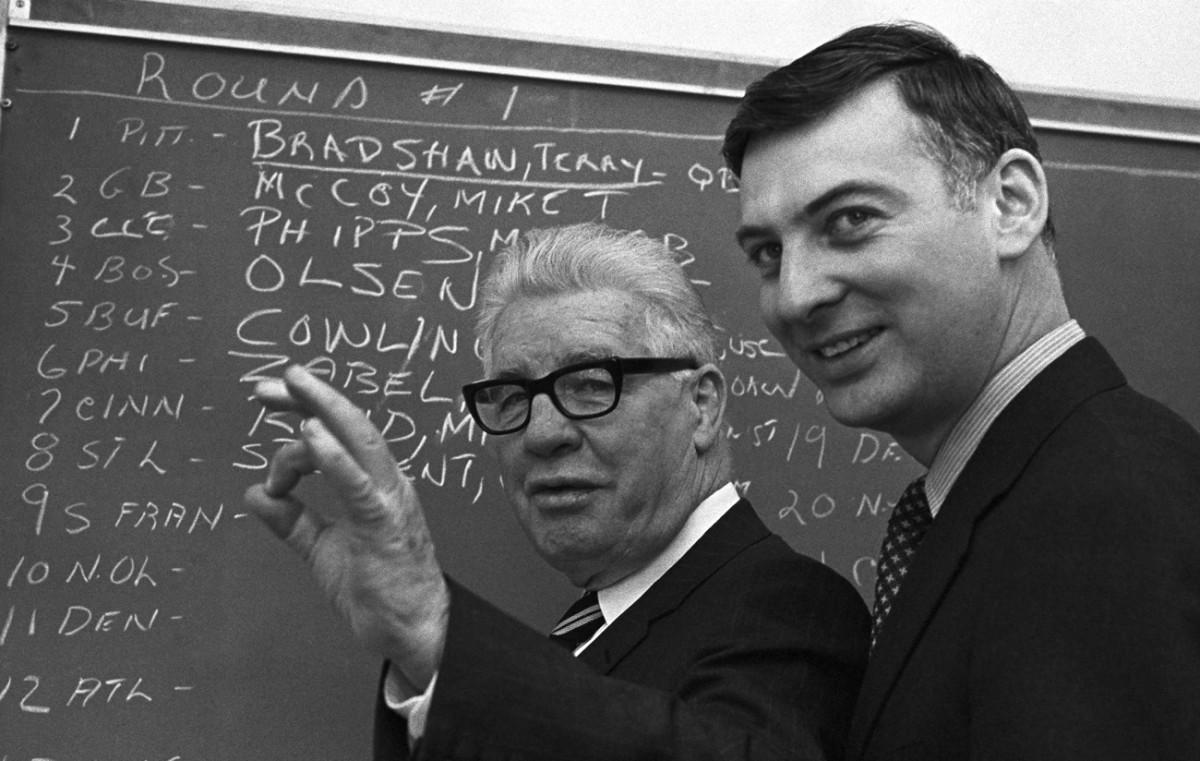
2004: Coming off a 6-10 season with only two playoff appearances in the previous seven years, Steelers coach Bill Cowher is given a contract extension by Rooney. “We don’t believe in impatience,” Rooney says. The Steelers will go 26-6 over the next two regular seasons and win Super Bowl XL in February 2006.
2006: There is a knock on the door of room 755 of the Renaissance Hotel in a Chicago suburb, on a hot day in August. Roger Goodell opens the door to see Rooney standing there. “Commissioner,” Rooney says, extending his arms into a hug. It had been Rooney who helped bridge the gap between Goodell backers and supporters of NFL lawyer Gregg Levy, and it is Rooney who informs the new commissioner of his appointment. Goodell will continue to have a weekly call with Rooney throughout his tenure.
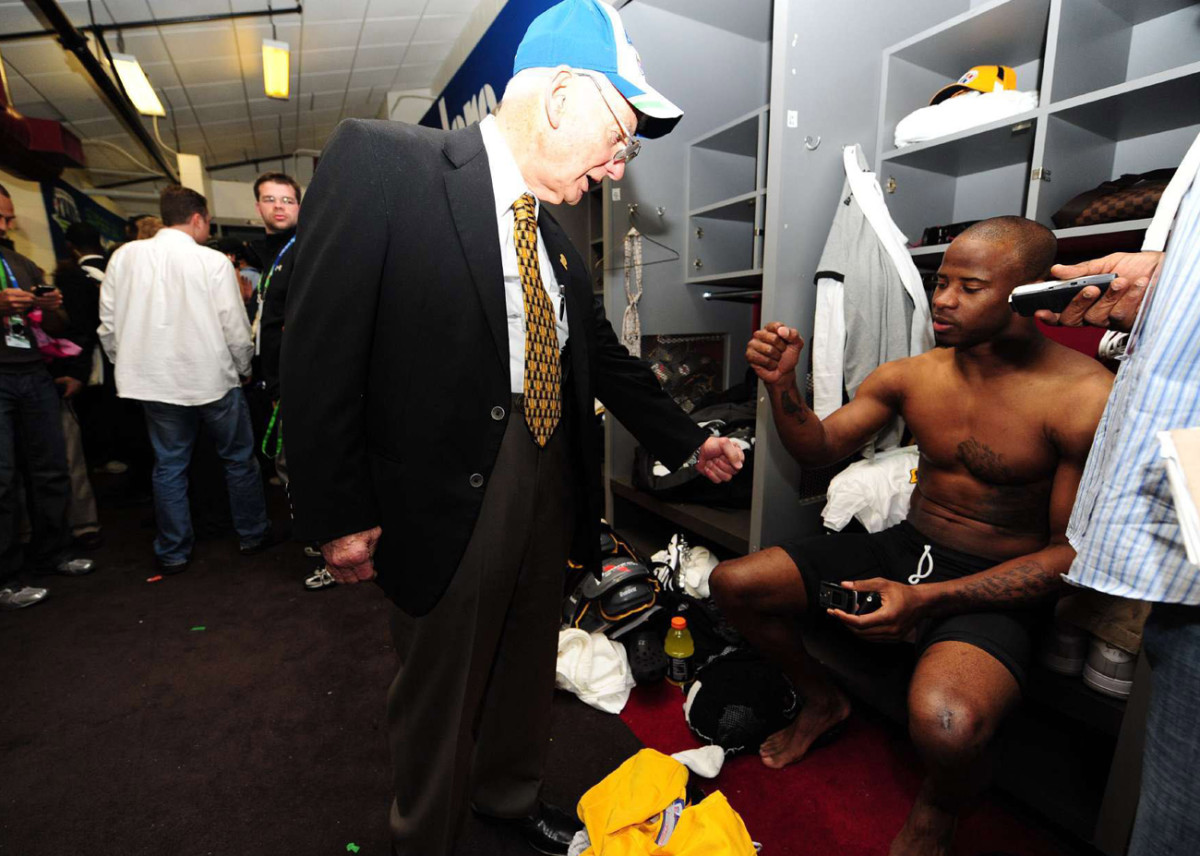
2009: Late March, league meetings, Dana Point, Calif. The annual Rooney family/Steelers dinner, for those close to the team and select local and national media. Rooney and wife Pat always sit with the commissioner. On this evening, the Steelers boss has a bone to pick with Goodell. Rooney fervently (and a bit bitterly) defends Hines Ward, Pittsburgh’s physical wideout who’d been fined heavily the previous season for what the league considered over-the-line hits. Rooney says pointedly: “He plays by the book!’’ Goodell shoots back: “Dan, the problem is, you never think your players do anything wrong.”
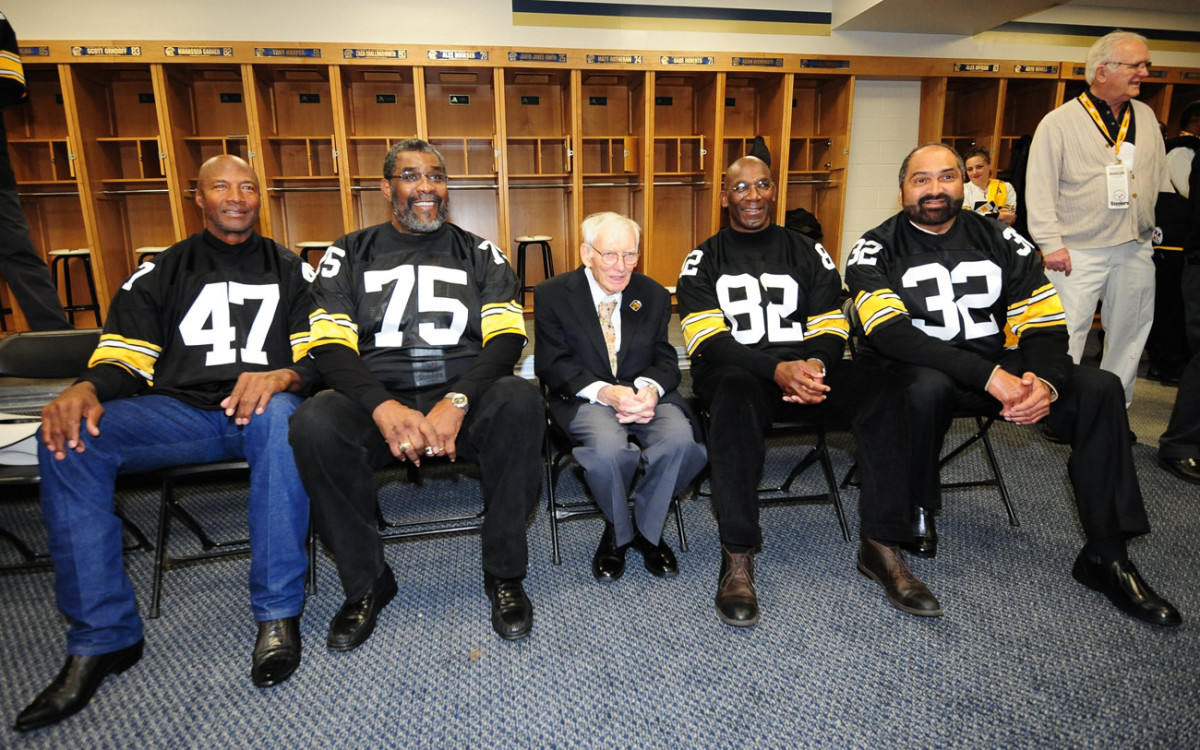
2009: In late June, Rooney is appointed U.S. Ambassador to Ireland by President Barack Obama, whom he’d supported in the 2008 presidential race. Over the next four years, Rooney becomes an on-and-off owner, ceding much control and authority to son Art Rooney II. It will break Dan’s heart to not be around the team every day. “But I had to do it,” he’ll tell me. “This was something great for our country, a great chance to pull everyone together.” Every Fourth of July on the lawn of the ambassador’s residence in Dublin, Rooney will organize an American football game.
* * *
“This is how much the owners thought of Dan Rooney,” Mara says. “With all the Republicans in the room, his support of Obama did not affect the respect everyone had for him when he stood to speak. Anytime Dan got up to speak, in fact, you could hear a pin drop, and that doesn’t happen very often. Most times in those meetings, you’d seen owners looking at their phones or being distracted with something. Not when Dan got up.”
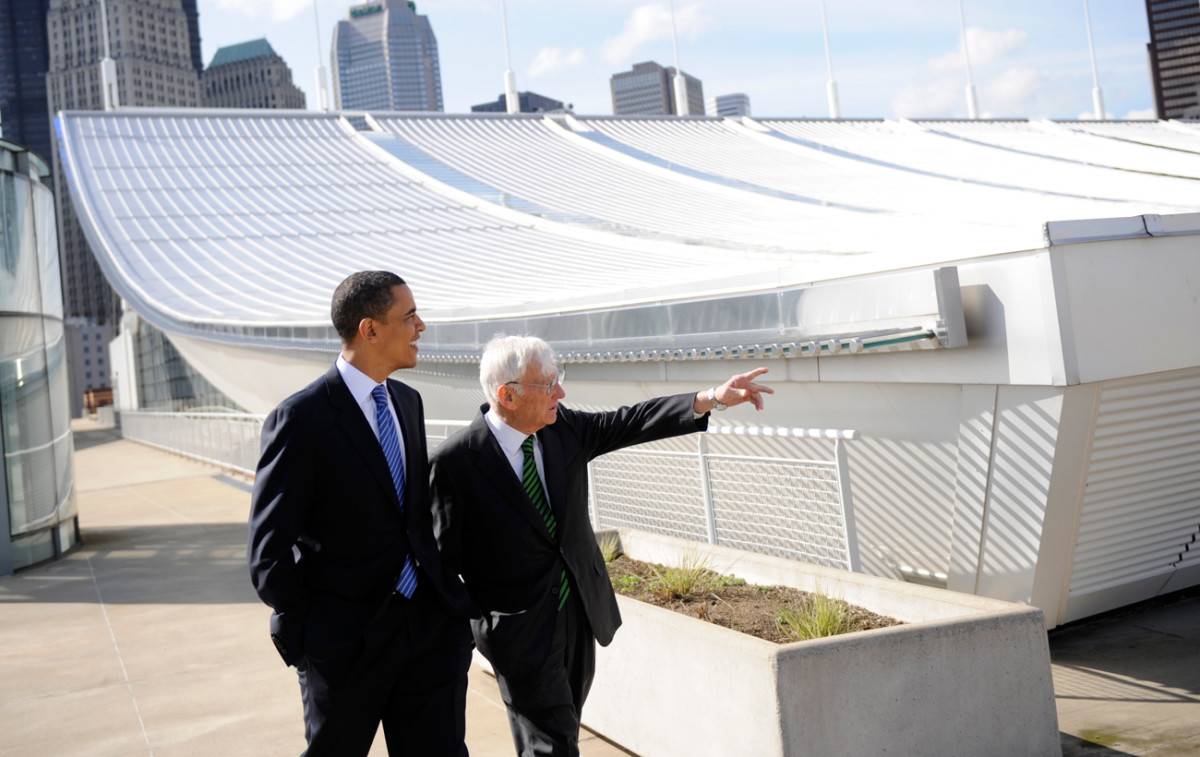
They thought that way because they knew Rooney would fight like heck for his team, but he’d also support league causes that might not be advantageous to the Steelers. He didn’t go crazy when the league informed the Steelers and Browns that they’d be moving over to the new American Football Conference in 1970. Somebody had to go, he thought; why should the Steelers not be chosen, particularly since they’d have the chance to stay in the same division with the rival Browns?
Dignity lay at the heart of how Rooney lived and worked. A few stories. One year at a league meeting he heard some grousing when the Steelers announced that they were holding the line on ticket prices. The visiting team receives a percentage of the ticket revenue for every game, so Rooney’s decision meant games in Pittsburgh wouldn’t be as lucrative for visitors as they could be. Rooney said in a meeting that year: “I’m not concerned about your share. You’ve got enough money—we’ve all got enough money. I’m concerned about our fans and their ability to afford the tickets.”
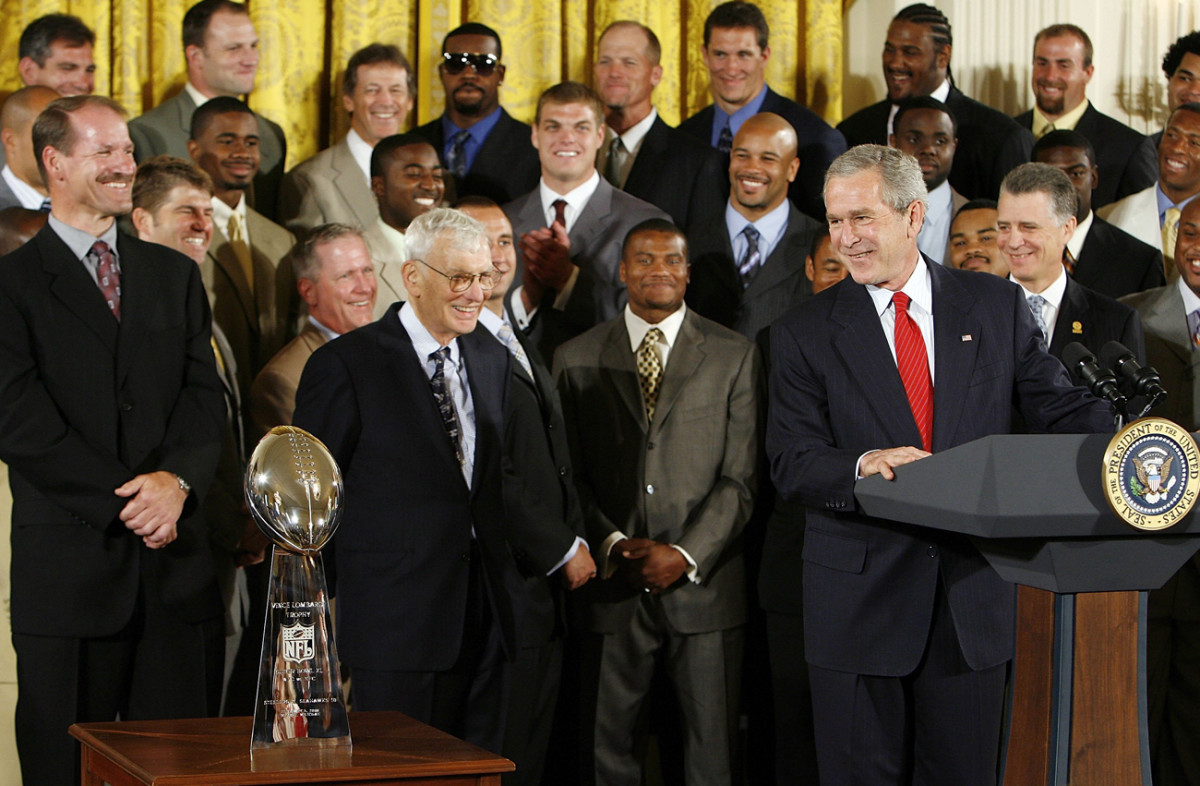
Every time a national writer was in the building, Rooney would insist on spending time with that writer, talking about football but also about life—politics, the league, families, the Hall of Fame (another passion of his). Rooney and I must have had six or eight long, impassioned conversations about the Hall of Fame selection committee denying Paul Tagliabue’s induction. “What are you guys doing in there!” he’d ask me. The annual dinner at the March meetings—“one of the highlights of my year,” Los Angeles Times writer Sam Farmer said—was always notable for its civility and 75 percent non-football talk. This year I sat across from Mike Tomlin and talked about Mookie Betts (his sons love him), and his oldest son looking at colleges with his pushy father. Farmer and Goodell talked Pilates and mountain-climbing.
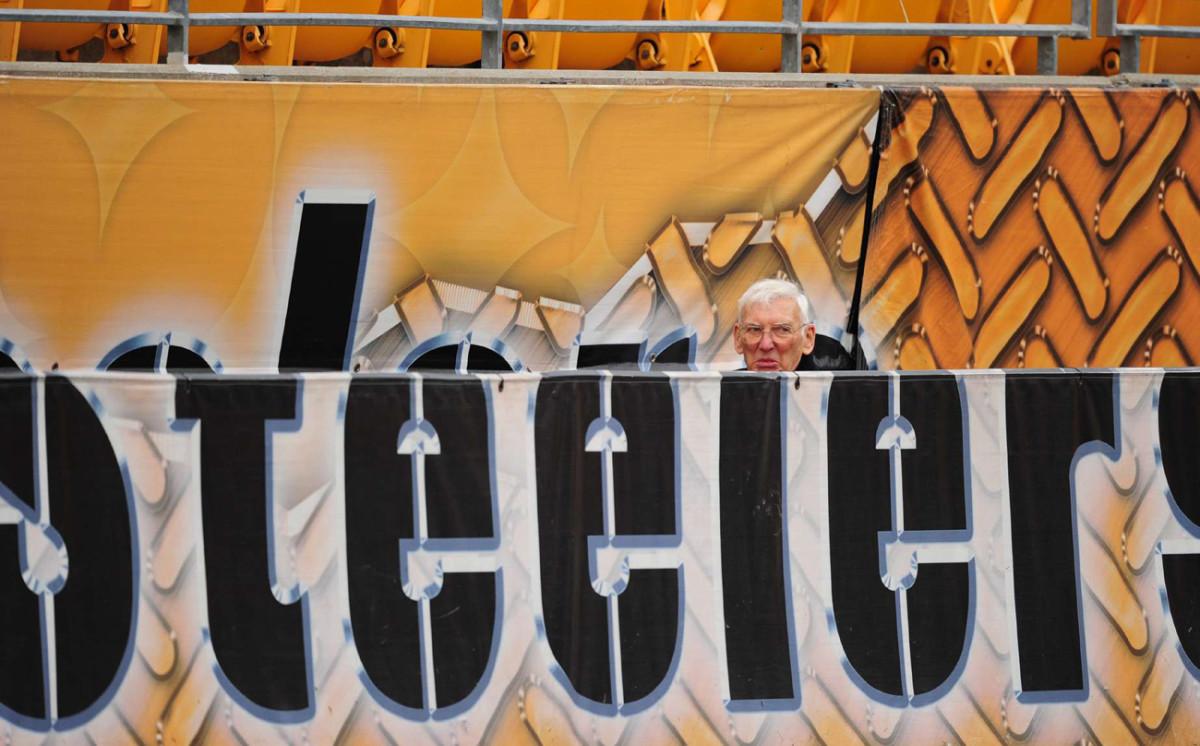
Art Rooney II seemed quieter than usual this year at the dinner, where Dan Rooney was noticeably absent. He had been suffering from debilitating back pain; he fell off a treadmill a couple of years ago, adding to his health woes. Dan Rooney had happily given the reins of the Steelers to Art, the way a father hands over the family business to a qualified son when the time comes, and Art adapted well. It was Art who was a key figure in the last CBA talks in 2011, and Art who was front and center in the franchise moves of the Rams, Chargers and Raiders in the last 16 months, for better or worse. The NFL always felt better when a Rooney was influential.
Tagliabue, the former commissioner, said in statement Thursday night: “He was an inspiration to millions throughout America, and in many other lands. He was at home on mean streets, in locker rooms and chapels, with presidents, popes, poets and visionaries. Few have served so many so well.
“In the NFL, he is irreplaceable.”
Today we lost a great one! I wouldn't be a Steeler if it wasn't for Mr Rooney! We will miss you dearly! Love you DMR! -- Ben pic.twitter.com/94jtHKKeFO
— BigBen7.com (@_BigBen7) April 13, 2017
RIP Dan. My Mentor & friend. Thank you for your Guidance & Wisdom. I came a Young Coach & left a Better Man. Your spirit will live forever.
— Bill Cowher (@CowherCBS) April 13, 2017
Words cannot express my sadness at this time but I feel so blessed to have known such a wonderful man. pic.twitter.com/P4WijbmSe3
— Jerome Bettis (@JeromeBettis36) April 13, 2017
The World, the NFL and Steelers Nation lost a leader and a legend today. 😢 pic.twitter.com/aszdaFxo1e
— Hines Ward (@mvp86hinesward) April 13, 2017
Very sad day for me hearing of the passing of Dan Rooney. Dan was just special. I was blessed to get to know him and blessed to be a Steeler
— Tony Dungy (@TonyDungy) April 13, 2017
I can't believe this news!!! RIP Mr Rooney pic.twitter.com/CPFEdm2Ezm
— Le'Veon Bell (@LeVeonBell) April 13, 2017
Question or comment? Email us at talkback@themmqb.com.
